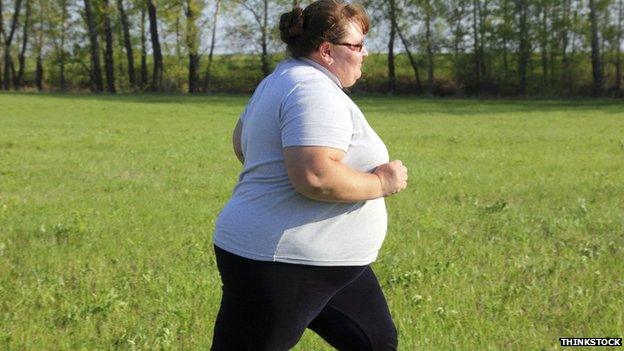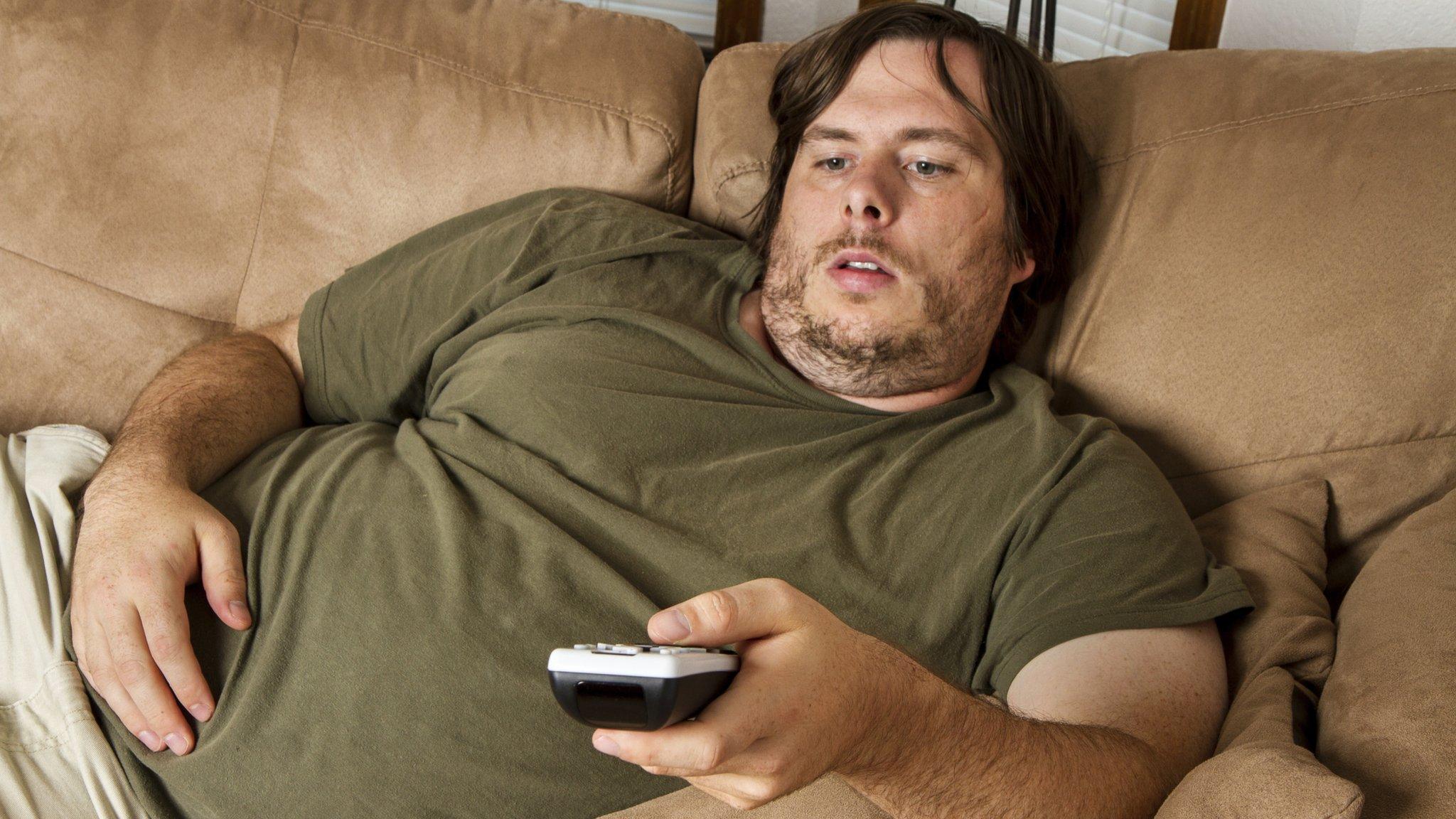NHS approach to obesity inexplicable, say MPs
- Published

MPs say it is "inexplicable" that the NHS in England spends more on bariatric surgery than well-established measures to prevent obesity.
A report by the Health Select Committee says health workers should use every opportunity to deal with the problem.
The MPs also call for urgent steps so people understand the wider health benefits of physical activity.
The government says its Change4Life programme is providing widespread free advice on healthy eating and exercise.
But the MPs argue that national and local government and the NHS must do more to prevent people becoming unwell.
That could include regulation of what goes into food, a ban on marketing sugary drinks to children, and much more support for people at risk of obesity and type 2 diabetes, so they do not need bariatric surgery.
"The committee regards it as inexplicable and unacceptable that the NHS is now spending more on bariatric surgery for obesity than on a national roll-out of intensive lifestyle intervention programmes that were first shown to cut obesity and prevent diabetes over a decade ago."
The report emphasises the "huge health benefits" of physical activity. The MPs cite recent research which found that for the most inactive people, walking for 20 minutes a day would have a greater positive impact than not being obese.
"It is vital that the importance of physical activity for all the population - regardless of their weight, age, gender, health, or other factors - is clearly articulated and understood."
'Fear of judgement'
The MPs also highlight inequalities in rates of physical activity, in particular the disparity between men and women.
Official figures suggest just 16% of girls aged five to 16 achieve recommended levels of physical activity, compared with 21% of boys.
Some 32% of women meet the recommended threshold for activity. For men, the official figure is 43%.
The report speaks of a "fear of judgement" deterring many women from taking exercise. One witness to the committee, Julie Creffield, described the ordeal of venturing out.
"I have women who tell me they run on a treadmill in their shed because they just don't want to be seen in public, but that is part of the problem. Because we don't see many overweight women exercising in public, other women don't think that exercise is for them."
In a statement, the Department of Health for England said a lot of progress had been made in tackling the issues raised by the MPs.
"Our Change4Life campaign has been providing widespread free advice on healthy eating and exercise, and nearly two million more people now play regular sport than 10 years ago.
"Working with the food industry, we have cut calories, salt and fat in food, and we have also given £8.2bn to local authorities to tackle public health issues like obesity."
Dr John Middleton, vice-president of the Faculty of Public Health, said: "Bariatric surgery generates huge costs to patients, families and the NHS. We need public health policies that can save money by helping prevent people becoming obese in the first place."
Prof John Wass of the Royal College of Physicians praised the select committee's report.
"It is welcome to see the findings of this report recognise the importance and benefits of physical activity beyond weight loss, as previous findings have shown regular physical activity of just 30 minutes, five times a week, can make a huge difference to a patient's health."
Recent analysis by the Royal College of Surgeons, external suggests rates of bariatric surgery have declined in the past two years.
- Published13 October 2014

- Published15 January 2015
